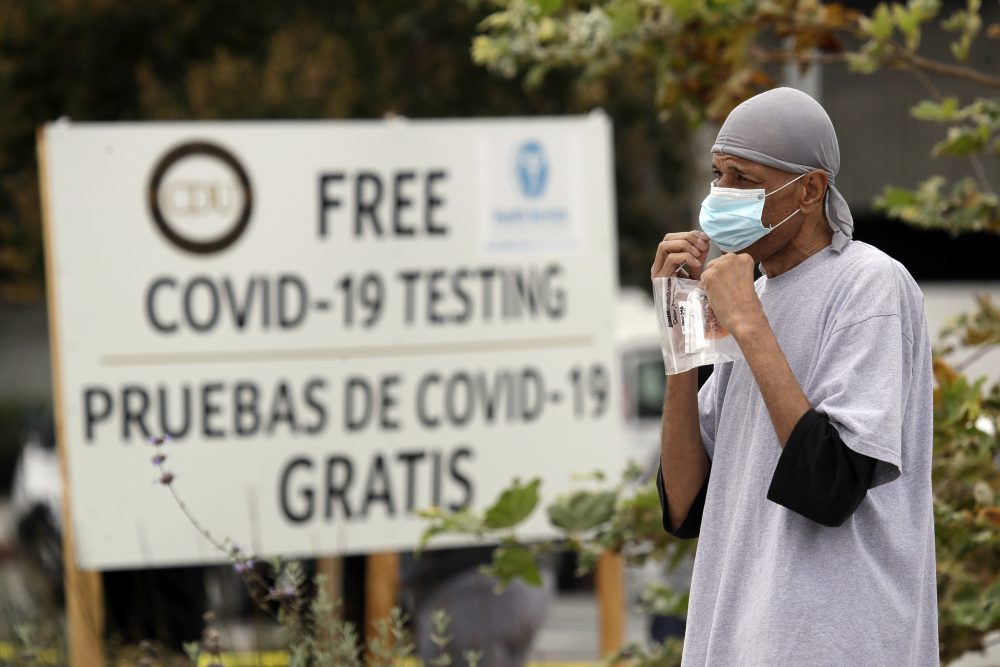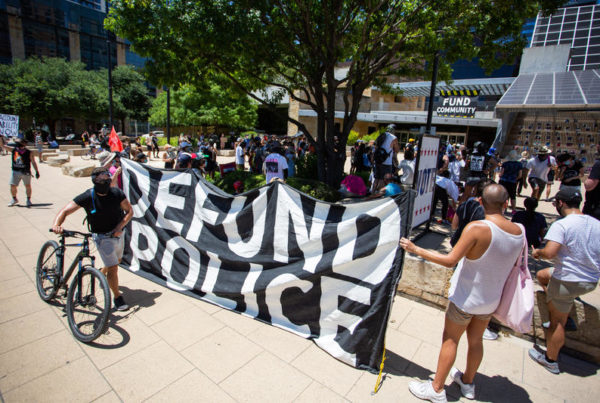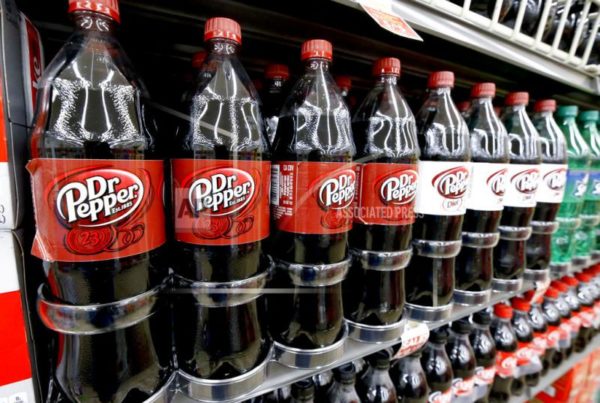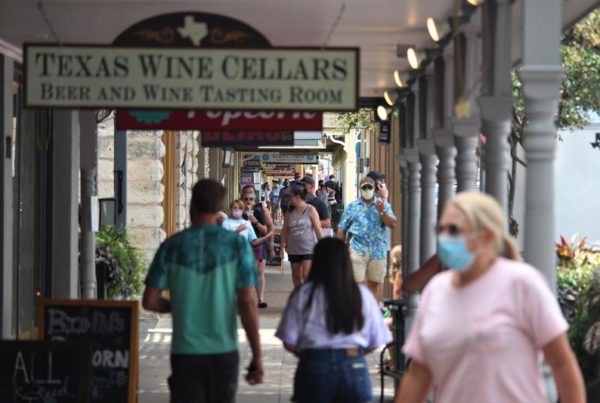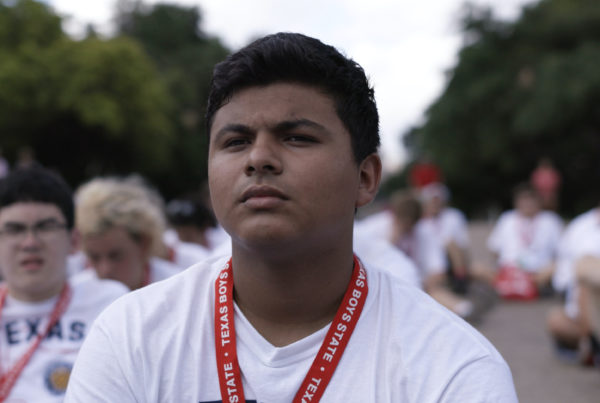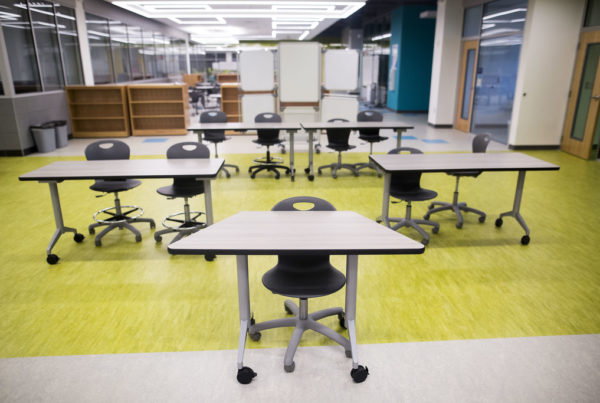COVID-19 has taken the lives of a disproportionate amount of Latinos in Houston and across Texas.
Though Hispanics make up 40% of the statewide population, they account for 52% of COVID-19 deaths, according to the Texas Department of State Health Services.
Health officials in Harris County and Houston have been scrambling to understand reasons for these disparities and have implemented new multilingual in-person outreach programs, where health workers go to flea markets, food banks or door-to-door to educate communities about the virus.
But at least 400 Latinos have already died from COVID-19 in Harris County and Houston — and more than 4,000 have passed away statewide.
Misconceptions about COVID-19
German Diaz, 47, admits that he hadn’t fully understood the gravity of COVID-19 or how testing worked. Just a few months ago, Diaz was afraid to go get tested for the virus.
“They were doing [coronavirus] tests here, 100 feet from my house,” Diaz said in Spanish, “Do you know why I didn’t go? Because of the fear that if I tested positive they would detain me right there and not let me leave. That was my ignorance, my fear.”
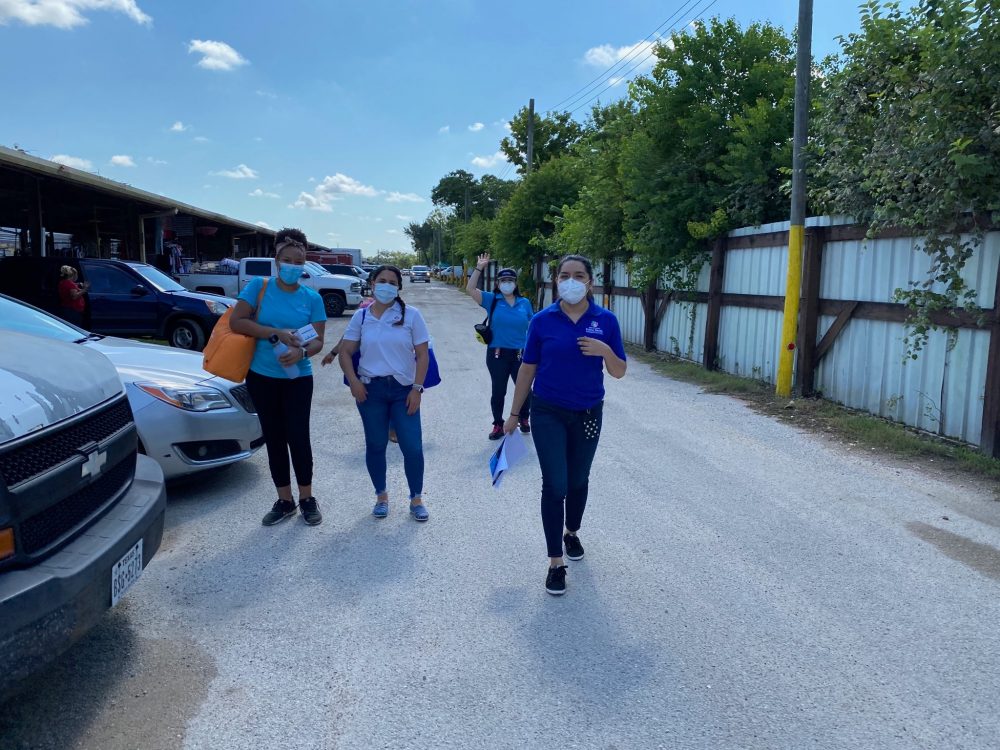
A Harris County Public Health outreach team hands out masks at Houston’s flea market. Photo: Harris County Public Health
But now he’s taking every precaution, including testing, since the virus nearly killed him.
Diaz is from Mexico. and believes he got sick at his construction job in June. An electrician on the job site had a bad cough. Nobody was wearing masks back then, he said.
Diaz started to feel weak at work, but he said he was reluctant to quit and returned to work for several days.
Then he was so weak, he had to stop.
In early July, he said, he was bedridden and could barely breathe. It happened to be the first anniversary of his father’s death.
He said he laid in bed, thinking to himself: “A year ago, they buried my father. Would it be that this year they’re going to bury me?”
“Everything crosses your mind, your kids, your little children,” he said. “What are they going to do without you?”
Like Diaz, tens of thousands of Latinos in the Houston region have gotten sick from the virus. And they’re dying at higher rates than other groups.
Hispanic men have been especially impacted. In the Houston area, they account for 48% of deaths, but just 42% of the adult male population, according to analysis of county and city data.
atino health disparities
“Hispanics tend to have higher rates of diabetes,” said Elizabeth Perez, communications and outreach director at Harris County Public Health.
In her role, Perez focuses on health disparities among different communities.
“With COVID it was new and we started to see it in front of our eyes,” she said.
One of the driving reasons behind the numbers is that many Latinos work essential jobs.
“They’re frontline workers, so grocery stores, waste management, cleaning, sanitation, food delivery,” Perez said. “So there’s an increased risk to them.”
She said another big factor is the uninsured rate.
Nearly 30% of Hispanics in Texas don’t have health insurance, according to the Kaiser Family Foundation, compared to 13% of white non-Hispanics.
“We had someone reach out to us on social media because they were undocumented and the mother was having difficulties breathing and they were scared because they were uninsured to go to the hospital because they couldn’t afford it,” Perez said.
Misinformation is also a problem, according to Perez, who said rumors about the virus spread quickly on social media and that some people may not believe it’s real.
She also said undocumented communities may be especially susceptible to misinformation, since they already have their guard up.
“They’re scared to go to a site and get tested when they see a police officer there,” she said, adding that people are worried about information being shared with law enforcement or immigration officials.
#Outreach looks different this year but we are still out in the community! Here’s our team @HarrisCoPct2 giving out food, masks and #COVID19 information/resources, in partnership with @HoustonFoodBank and Iglesia Cristiania Divina church. #staysafe #MaskUp pic.twitter.com/NPVRsEOCSk
— Harris County Public Health #SocialDistance (@hcphtx) August 11, 2020
Hispanics are also more likely to live in multigenerational households where COVID-19 can spread within families.
“A lot of the patients I see were concerned because they have either their grandmother, their mother, their father, they’re elderly, but they were the one who had to go out and work,” said Diana Grair, medical director of the San José Clinic.
Grair’s clinic serves uninsured patients in the Houston area — many are Latino immigrants.
“It was difficult for them to make that decision that they’re going to need to go out, even early on where everyone had to stay home, but they themselves really had to go out,” said Grair.
German Diaz, in North Houston, eventually recovered from COVID-19. But before he did, his wife and two of his kids got sick, too.
His family is fine, but he’s lost friends to the virus. He said he hopes other Latino families realize how serious the disease is and protect themselves — and, he added, he wants to share his own story as an example of the importance of getting tested.
“If someone wants to talk to me, to ask me something, with pleasure I’ll give them what they need to empower themselves to move forward, or for them to help someone,” Diaz said.


